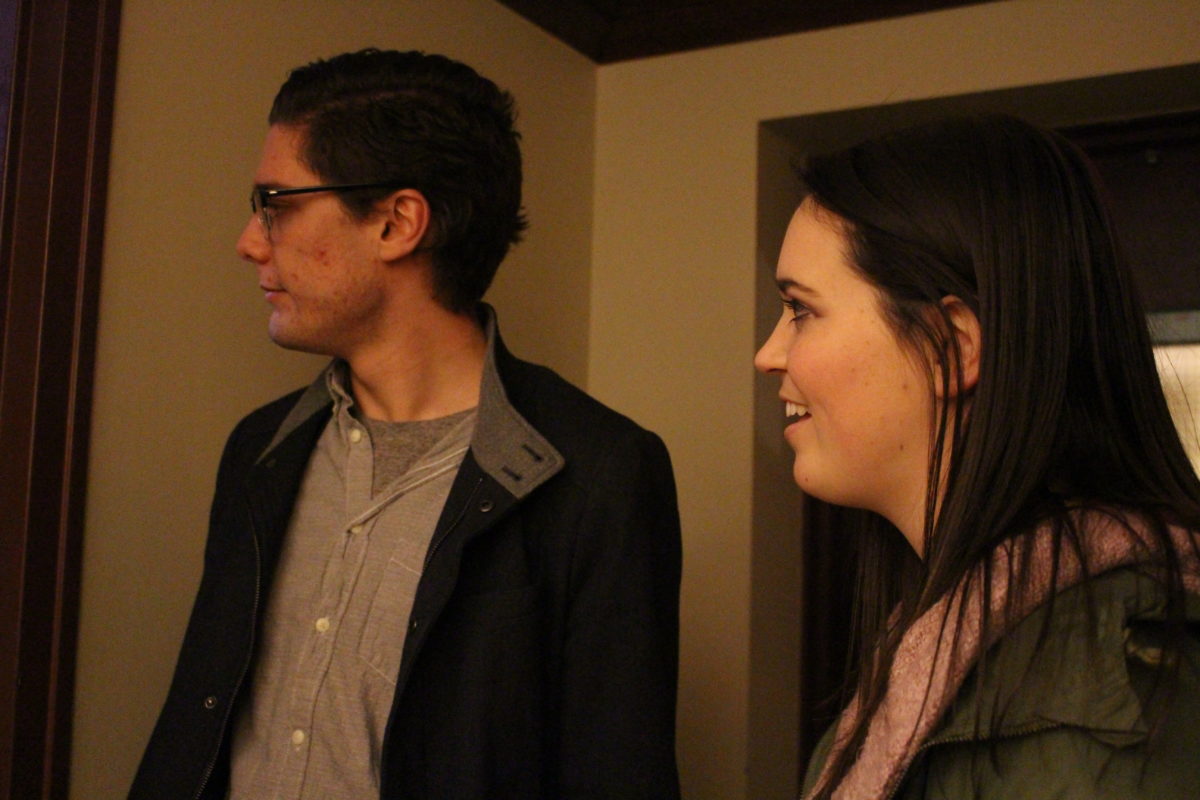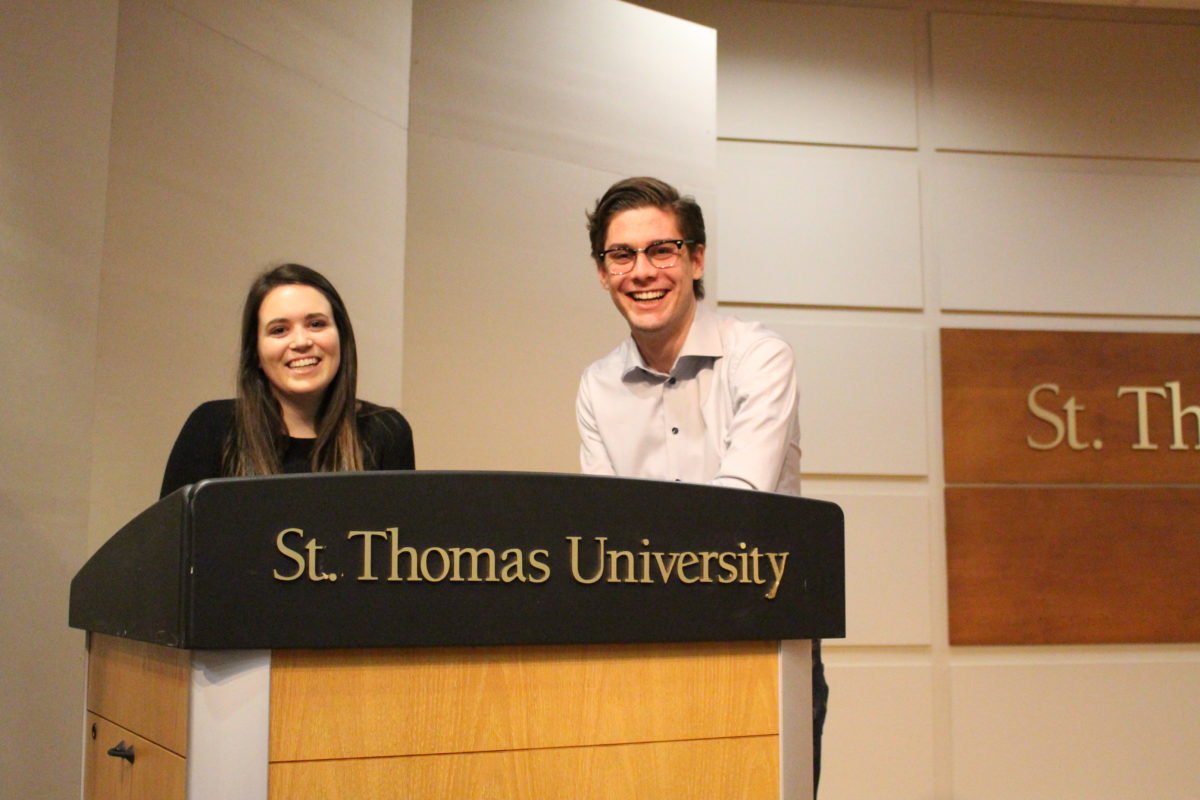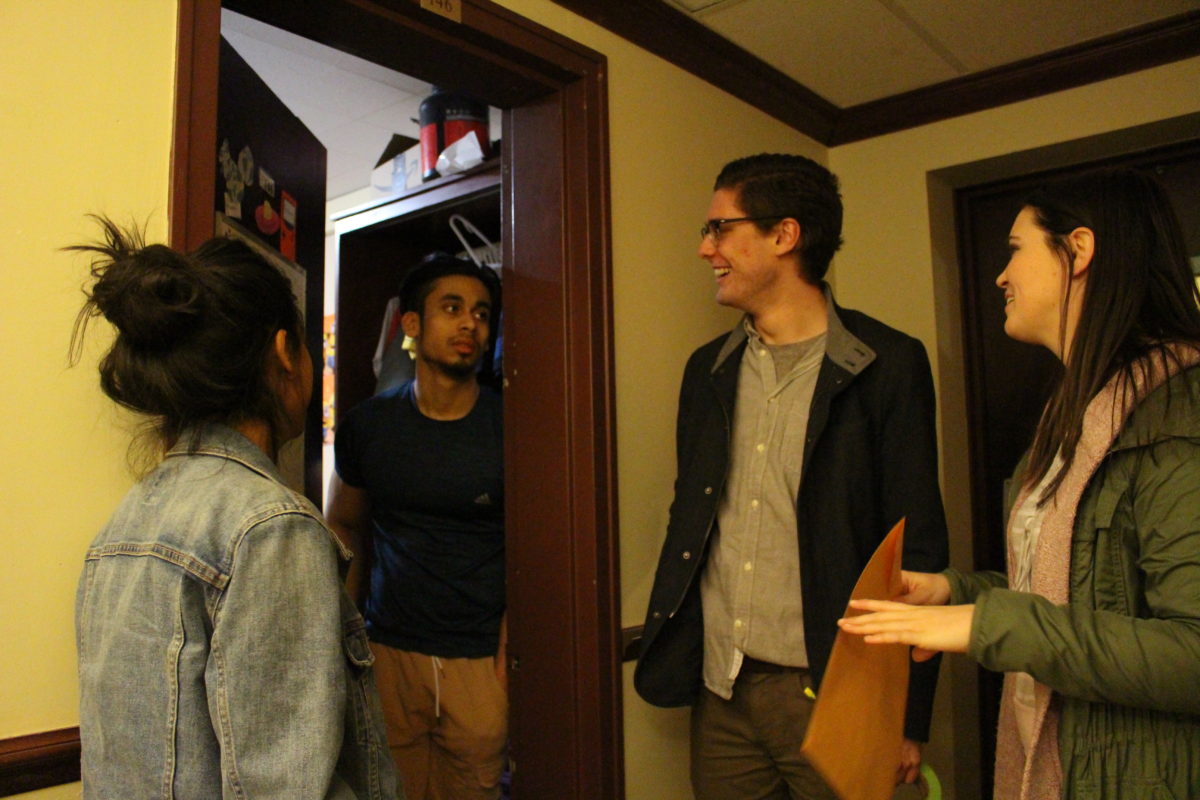Without a “No” campaign to go against, students supporting the installation of a $33.91 fee for mental health services and programming at St. Thomas University got to work earlier this week.
Matt LeBlanc, vice-president administration of the STU Students’ Union, and Katie MacDermaid, a third-year communications and Great Books student, are coordinators of the “Yes” campaign.
Basic ideas and questions are being addressed through posters, online advertisements, door-to-door campaigning and leaflets across campus. MacDermaid said they’ve prioritized talking to the STU community.
“We’ve been trying to reach out to as many different students as possible and get as many different perspectives as possible, and kind of get their take on mental health,” MacDermaid said on March 23.
“Because as a really small university … it’s really important to get different opinions and different perspectives … We have lots of people who are willing to talk about it and really very open about mental health concerns.”

Part-time students would pay $3.40 per three-credit hour course.
The fee will go through STU’s capital campaign, a funding initiative aimed at rebuilding scholarship endowments, assisting residence renovations and supporting mental health services.
If students say yes in the vote on March 28 and 29, St. Thomas University could see an extra $300,000 go toward its mental health services and programming over the next four years.
Slow start
The campaigning period began March 21, but was slow getting started. The referendum supporters were thrown off by end-of-semester chaos and not having a “No” campaign, but LeBlanc said he’d been talking to a number of students throughout the week.
“I met with a few students just about the specifics of the fee, just because … a lot of the information hasn’t been disseminated yet,” he said.
“But I’ve met with a few students or emailed a few students just to answer basic questions.”
LeBlanc, MacDermaid and Wasiimah Joomun, STUSU’s international representative and incoming vice-president student life, went door-to-door in Harrington Hall and Chatham Hall to talk to residents about the upcoming vote.
LeBlanc said the campaigning went “wonderful.” They ended up running out of handouts and had to print more.

The Aquinian reached out to a number of students to hear their worries about the referendum, but many felt uncomfortable speaking as they did not want to come off as holding an anti-mental health position.
This, mixed with end-of-semester chaos, is largely the reason no students took the initiative to head an anti-referendum campaign.
But MacDermaid said it doesn’t mean there aren’t students opposed to the idea.
“I think that’s perfectly reasonable and fair,” she said.
“That’s why it’s a referendum, that’s why it’s important that the students are able to vote on it. It’s important that they have a say and it’s a decision that’s made by the entire student body and not just one group of students.”
LeBlanc said they will communicate the concerns a “No” campaign would have to be transparent and to offer their rebuttals.
The main concern has been a financial one. Why make students pay even more?
Students already pay three STUSU fees: $150 for facility renewal, $150 for technology and $27 for media.

LeBlanc said there are only three alternatives to what the referendum is offering.
“[Either] government funding we’re not getting, a tuition increase that would be hundreds of dollars or the university’s own fee which would more than likely match the $150 … This is the cheapest, [most] realistic option.”
MacDermaid said in comparison, $33.91 is “a pretty reasonable price for what the situation is.”
‘Worth so much more’
The most recent National College Health Assessment the university participated in shows the struggle with mental health is above the national average for STU students.
In 2013, 78 per cent of STU students identified as being very lonely, 69 per cent felt hopeless and 51 per cent said they felt so depressed they were unable to function.
It also showed 18 per cent considered suicide and 2.7 per cent had attempted. The national average for self-harm sat at 6.6 per cent, while STU’s average was more than double at 13.4 per cent.
Nationally, 6.1 per cent of students said they had been diagnosed or treated for depression and anxiety. STU’s number was 13.4 per cent.
Students have also been asking why it is up to them to pay for the fee.
To that, MacDermaid said it’s important to remember what’s at stake.
“It’s not a matter of thinking so much about who’s responsibility it is to fund this, but rather that it does get funding and it does happen.”
LeBlanc’s passion to pass this referendum came from months of seeing the use of the student health plan and the overwhelming amount of prescriptions treating depression and anxiety. It’s something he’s watched many peers struggle with over his four years at STU.
And for MacDermaid, she said mental health, good or bad, affects everyone.
“Mental health is worth so much more. You can’t put a monetary value on a life,” she said.
“And if this helps at least one person, I think as students, as a collective, we’re doing our job, to support those students in our community who need it, to support ourselves.”

